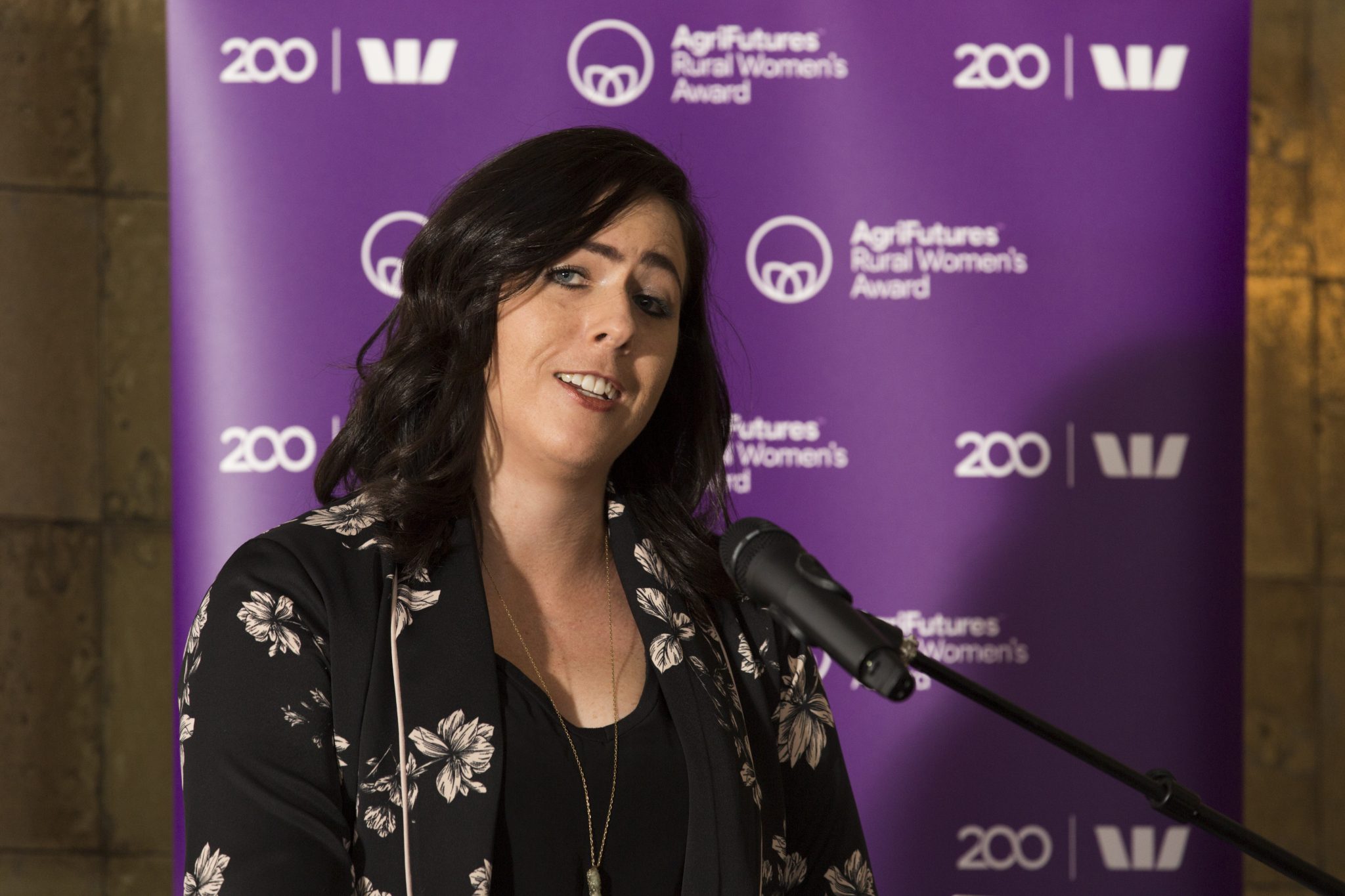I could not be more passionate about Australia’s rural industries, particularly horticulture. I work in a rural industry because I love it, but I happen to work and live in Melbourne.
When I was fortunate enough to be chosen as the 2016 Victorian winner of the Rural Women’s Award no one batted an eyelid that I was from Melbourne. I was recognised for my ongoing work at AUSVEG in the field biosecurity, work which safeguards the horticulture industry against pests and diseases. I might do my job from Melbourne but it has a direct and positive impact on a rural industry the prosperity of which is vital to Australian agriculture.
The AgriFutures™ Rural Women’s Award is about acknowledging and supporting the essential role women play in rural industries, businesses and communities, no matter their location. So, if you’re a woman doing work that is building capacity, creating impact in rural industries or rural and regional communities, AgriFutures Australia wants to hear from you because applications for 2018 are now open.
The recognition for my industry and my work in biosecurity was only a small part of what I got out of being included in the Rural Women’s Award program; the much greater asset was the learning and professional development which allows me to influence and effect change for rural industries, now and into the future. I also get to be part of a network of more than 200 accomplished women who are contributing to Australia’s rural industries. I look forward to future collaborations with rural women who I have met through the award on projects that will further increase capacity and capability in rural Australia.
To me it’s a counterproductive idea to limit the Rural Women’s Award to any particular postcodes or locations. The more inclusive it is, the more opportunities there are for rural industries to be supported and for a spotlight to be shone on issues affecting rural and regional communities. I know only too well that you can do work that impacts a rural industry from any location, even from the middle of a big city.
For too long we’ve thought of city and country as a divide but it doesn’t have to be. To continue to promote this idea would be a retrograde step for agriculture, which has become a complex, dynamic interplay between professionals living in both country and rural areas. In a changing global economy, and on the climb to a technological high-point in agriculture, inclusion and support of non-traditional champions will aid agricultural industries achieve both growth and sustainability. If long term prosperity and innovation in rural industries is going to be a reality, we need to be positive and inclusive.
It’s time to move away from competition between city and country and the messages that tell us rural women are disadvantaged or isolated. Yes, life outside our major cities is different to life within them but it’s no better or worse. We’re all equals, each of us maximising the opportunities that come our way, overcoming challenges and working to make our industries and communities better however we can.
For my part, I have overcome significant challenges while finding both my way to, and my place in, Australian agriculture. This makes me all the more grateful for my current position in the industry.










